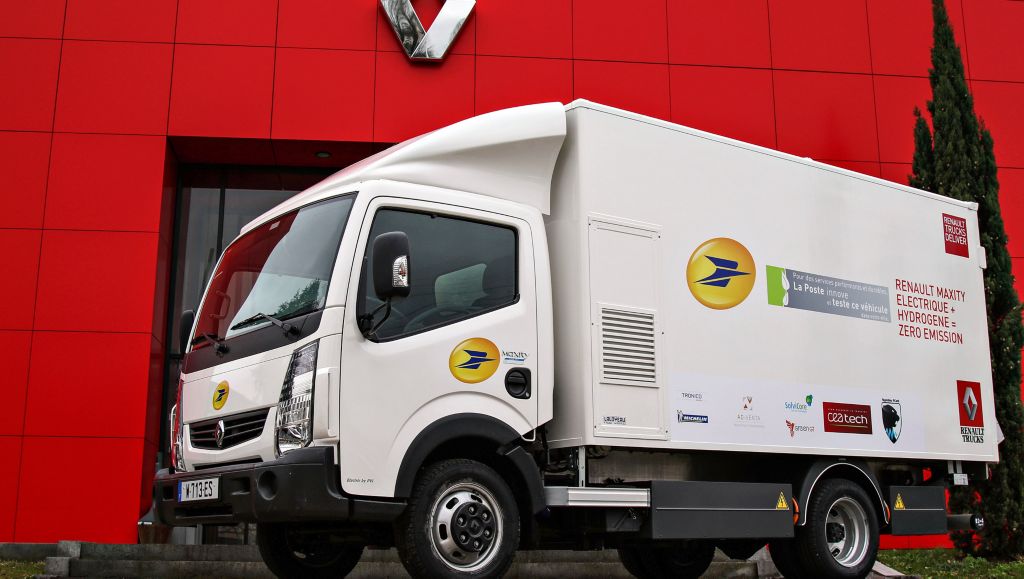La Poste chooses an electric truck from Renault Trucks


The French postal service, La Poste, prides itself on owning the world’s largest fleet of electric vehicles. With so many daily deliveries, the company tries to find as environmentally sustainable transportation methods as possible, explains Pascal Marin, head of La Poste’s vehicles:
“We must accept our responsibility and electric trucks are therefore a good alternative. They don’t produce local emissions and they are very quiet,”says Pascal Marin.
The only potential downside he sees is the time needed for charging the batteries. La Poste is therefore working with Renault Trucks and a battery supplier to increase truck autonomy. Their joint collaboration has resulted in a new hydrogen-powered fuel cell which instantly doubles the operating range of the truck and reduces the charging time to a few minutes. Using this fuel cell, the truck is able to drive 200 kilometres without being charged.
The technology is now being tested for the first time in a Renault Maxity Electric truck which has been equipped with a hydrogen-powered fuel cell and is being used in the French city of Dole, in Jura province, a location chosen for its harsh winter climate. The idea is to really put the battery to the test and both La Poste and the Volvo Group are monitoring the outcome meticulously.
So far, the result has exceeded expectations.
“The truck has already run 16,000 kilometres and it works really well! The drivers like it; it is comfortable with good heating – a real plus for an electric vehicle – and it is easy to drive. And the hydrogen fuel cell is performing just as we had hoped,” says Pascal Marin.
As a long-time Renault Trucks customer, Pascal Marin feels the two companies share the same commitment to environmentally sustainable solutions. He is convinced electric trucks will be increasingly important for delivery transport.
This view is echoed by François Savoye, Energy Efficiency Strategy Manager at Renault Trucks. He notes how many cities, not least in Europe, are imposing stricter regulations governing carbon emissions, air quality and noise levels. For example, the French capital, Paris, is planning to ban diesel vehicles from its city centre in 2020 and other cities throughout France may follow suit.
During the past few years, six customers have been involved in different electrification projects with Renault Trucks and Volvo Group. The starting point has always been finding a solution that suits the customer in question.
Thomas Justin is project leader for electromobility within Advanced Technology & Research, Volvo Group. He sees many advantages to this way of working. Not least that the different technological solutions can be assessed in field tests.
“It’s important that we have a dialogue with customers the whole time. I am now going to evaluate the La Poste field test and interview all the participants. This will give us very valuable information,” says Thomas Justin.
He believes that this dialogue will be increasingly important as the competition in the field of electro-mobility intensifies.
“We benefit greatly from our long cooperation with customers concerning electro-mobility. It is a question of both listening to the customer’s needs and being a partner that can advise them on how they can adapt their activities,” says Thomas Justin.